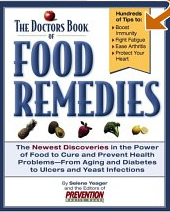Health Benefits of Coconuts
The below provides a general overview on this topic and may not apply to everyone. Any treatment protocol should be discussed with a qualified healthcare practitioner. Please refer to: Medical & Legal Disclaimer
⚖️ Weight-Loss Benefits
Coconut oil is nature's richest source of MCTs (Medium Chain Triglycerides). Not only do MCTs raise the body's metabolism leading to weight loss, but they have special health-giving properties as well.
🔬 Research Findings
Dr. Jon Kabara (Lipid Researcher): "Never before in the history of man is it so important to emphasize the value of Lauric Oils. The medium-chain fats in coconut oil are similar to fats in mother's milk."
Animal Study Results (44 days)
Low-Fat Diet0.47g fat stored/dayLCT High-Fat Diet0.48g fat stored/dayMCT High-Fat Diet0.19g fat stored/day60% reduction!Human Study: Metabolic Rate Increase
MCT-containing meals12% increase in metabolic rateLCT-containing meals4% increase in metabolic rate💡 Key Takeaways
- • When MCTs are substituted for LCTs, the body is much less inclined to store fat
- • MCT diets are more effective than low-fat diets at decreasing stored fat
- • Could produce weight loss "even in the absence of reduced intake"
More information on Weight Loss
🦋 Coconut Oil: A Healthy Choice for the Thyroid
Coconut oil is a saturated fat made up primarily of medium chain fatty acids. Also known as medium chain triglycerides (MCTs), these fatty acids are known to increase metabolism and promote weight loss. Coconut oil can also raise basal body temperatures while increasing metabolism. This is good news for people who suffer with low thyroid function.
🌿 Digestive Disorders
Patients suffering from Crohn's Disease and Irritable Bowel Syndrome reported relief after adding coconut oil into their diet.

🦠 Antiviral Properties
Dr. Bruce Fife (author of "Coconut Cures") states that the coconut is one of the best natural defenses we have against the flu.
🛡️ Flu Protection
Coconut oil possesses powerful antiviral properties that can kill viruses, including the flu virus.
🧬 MCT Conversion
Our bodies convert MCTs into medium-chain fatty acids and monoglycerides, both effective in killing lipid-coated viruses.
💪 Immune Boost
Coconut oil helps boost the immune system, enabling the body to fight off infections more efficiently.
📝 Daily Recommendation
By consuming a couple of spoonfuls of coconut oil daily, you can develop immunity to the flu. Safe and economical protection.
🔬 HIV/AIDS Research
Dr. Conrado S. Dayrit (University of the Philippines): "Initial trials have confirmed that coconut oil does have an anti-viral effect and can beneficially reduce the viral load of HIV patients."
Key Findings:
- • Minimum 50ml coconut oil contains 20-25g lauric acid
- • Metabolized to release monolaurin (antibiotic & antiviral)
- • Lauric acid has maximum antiviral activity among saturated fatty acids
Dr. Mary Enig (1995):
Reported case of HIV-positive infant becoming HIV-negative when fed infant formula with high coconut oil content, demonstrating monolaurin generation in the body.
💓 Cholesterol Benefits
New research suggests that virgin coconut oil may actually reduce harmful LDL cholesterol levels, despite its high saturated fat content.
💄 Personal Care Applications
💇♀️ Hair Care
The secret of many renowned hair dressers is coconut oil. The richness and highly moisturizing properties promote shine, keep hair from turning gray, and help sparse hair grow thicker and fuller.
💰 Budget-Friendly Tip
Noel from Georgetown, Texas: "If you're on a budget, I found a TWO POUND tub of Coconut Oil at WAL-MART for $2.82. The brand is LouAnn in the baking supplies aisle."
🌿 Weekly Hot Oil Treatment
The secret of luxurious hair of Indian women
- 1. Heat coconut oil in pan (DO NOT MICROWAVE)
- 2. Massage scalp
- 3. Distribute oil throughout hair
- 4. Place clean towel over pillow, leave overnight
- 5. Rinse out in morning
- 6. Enjoy your lustrous look
💡 Pro Tip
Add a few drops of Rosemary Essential Oil to increase blood flow in the scalp for dandruff relief and hair growth.
💋 Lip Balm
For natural lip balm, use coconut butter on its own, or add peppermint or spearmint oil (organic Essential oils).
🧪 DIY Recipe from Dottie
Sweet Option: Dissolve Stevia in Coconut Oil for sweet taste. Ensure Stevia is fully dissolved to avoid graininess.
My Tip: Add a couple drops of peppermint essential oil for nice taste.
